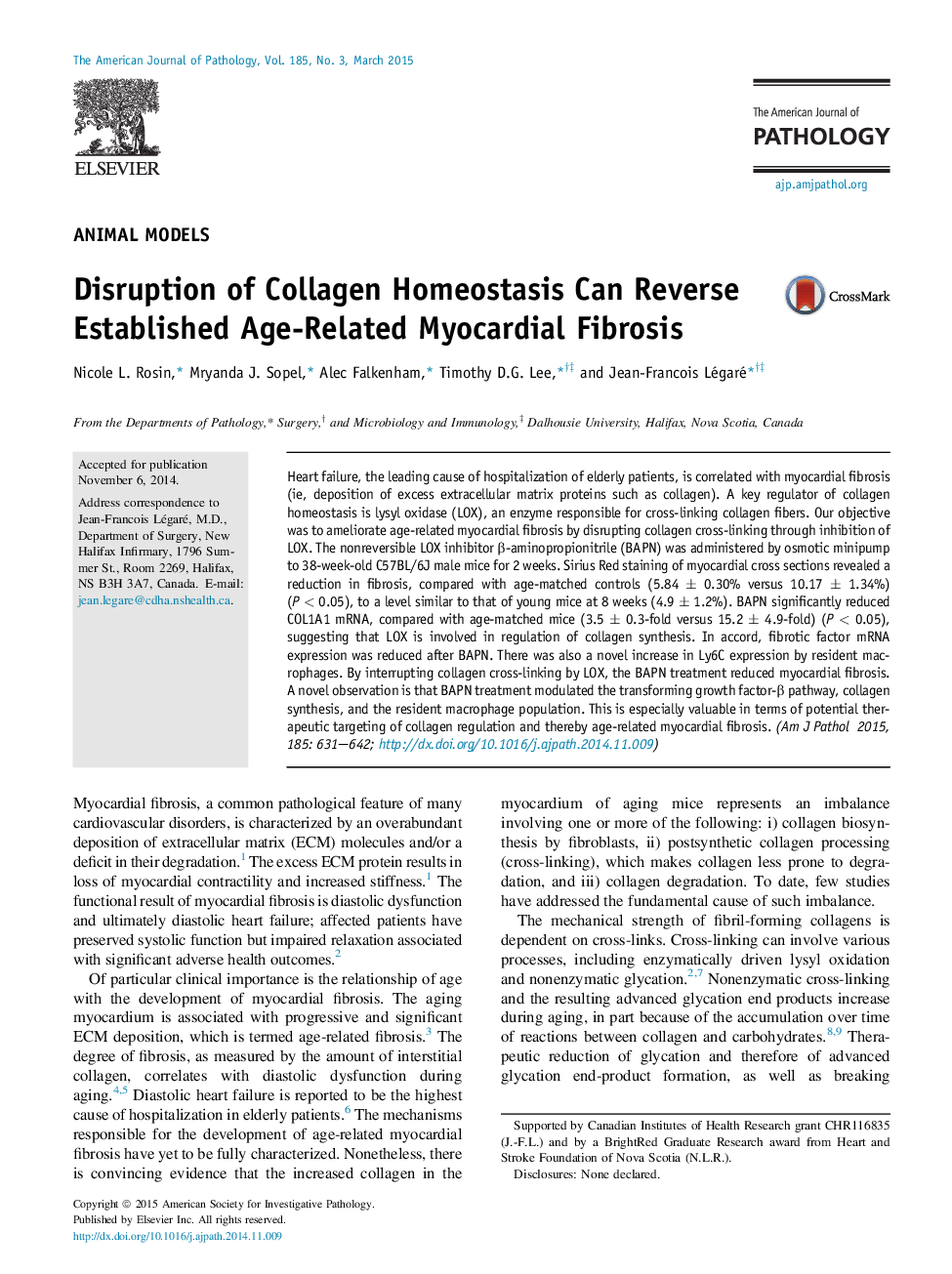| Article ID | Journal | Published Year | Pages | File Type |
|---|---|---|---|---|
| 5932489 | The American Journal of Pathology | 2015 | 12 Pages |
Abstract
Heart failure, the leading cause of hospitalization of elderly patients, is correlated with myocardial fibrosis (ie, deposition of excess extracellular matrix proteins such as collagen). A key regulator of collagen homeostasis is lysyl oxidase (LOX), an enzyme responsible for cross-linking collagen fibers. Our objective was to ameliorate age-related myocardial fibrosis by disrupting collagen cross-linking through inhibition of LOX. The nonreversible LOX inhibitor β-aminopropionitrile (BAPN) was administered by osmotic minipump to 38-week-old C57BL/6J male mice for 2 weeks. Sirius Red staining of myocardial cross sections revealed a reduction in fibrosis, compared with age-matched controls (5.84 ± 0.30% versus 10.17 ± 1.34%) (P < 0.05), to a level similar to that of young mice at 8 weeks (4.9 ± 1.2%). BAPN significantly reduced COL1A1 mRNA, compared with age-matched mice (3.5 ± 0.3-fold versus 15.2 ± 4.9-fold) (P < 0.05), suggesting that LOX is involved in regulation of collagen synthesis. In accord, fibrotic factor mRNA expression was reduced after BAPN. There was also a novel increase in Ly6C expression by resident macrophages. By interrupting collagen cross-linking by LOX, the BAPN treatment reduced myocardial fibrosis. A novel observation is that BAPN treatment modulated the transforming growth factor-β pathway, collagen synthesis, and the resident macrophage population. This is especially valuable in terms of potential therapeutic targeting of collagen regulation and thereby age-related myocardial fibrosis.
Related Topics
Health Sciences
Medicine and Dentistry
Cardiology and Cardiovascular Medicine
Authors
Nicole L. Rosin, Mryanda J. Sopel, Alec Falkenham, Timothy D.G. Lee, Jean-Francois Légaré,
